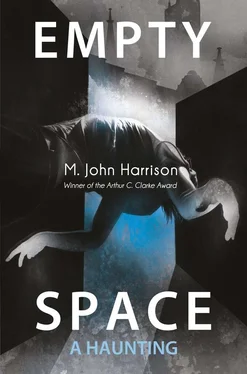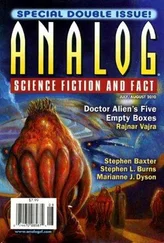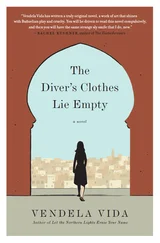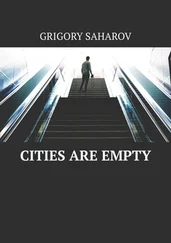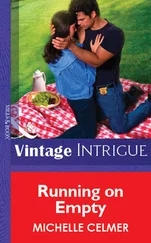He shook his drink and watched it settle. ‘Not me,’ he said. ‘I got a six month contract to move some of it around, that’s all.’
‘And how are you enjoying that?’
Antoyne made the universal gesture for money. ‘This way,’ he boasted. ‘Mostly though my pilot does the work, you’ve seen her in here. She goes by Ruby Dip.’ Suddenly it occurred to him to ask: ‘Why are we talking about this?’
‘Because once all the other questions are asked, the last one left is: what does this new species want ?’
Renoko leaned forward intently. He looked in Fat Antoyne’s eyes.
‘Would your pilot ever take a passenger up to the orbit? Would that seem possible?’ Immediately he suggested it, he began to laugh. They both knew he’d gone too far. Up there, the Quarantine Bureau was all over you with every kind of licence and paperwork. In addition they had oversight by EMC assets, the fragmentary orbits of which looped round Vera Rubin’s World as tight as the lines of a paranoid magnetic field. ‘Before you answer that,’ said Renoko, to release the tension, ‘let me get you another of those weird drinks you like.’
But Antoyne now shook his head no thanks and got to his feet. Some said MP Renoko was a twink addict and orbital miner, real name ‘Remy Kandahar’, wanted for crimes on all those worn-out planets of the Core. Others believed him to be all that remained of the notorious Circus of Pathet Lao — aka Sandra Shen’s Observatorium & Native Karma Plant — the assets of which he had been in the process of stripping since Sandra Shen’s disappearance fifty years before. Fat Antoyne, who subscribed to neither of these options, took out a hologram business card for Dynadrive-DF. This he placed on the table next to Renoko’s empty glass, saying: ‘“We haul anything,” is our pledge. Find us at Carver Field, Saudade if you ever want to do business of that kind. Just get in touch.
‘Thanks for the drink, I needed that after what I saw.’
Later that night, having found his way without further incident down the unreliable perspectives of Gravuley Street to Ruby Dip’s room, he said:
‘It makes you think.’
‘I know what it makes me think,’ said Ruby.
Ruby Dip was a short, broad, muscular woman fifty years old, whose skin not only told the whole story of life in the Halo through tattoos reading ‘Tienes mi corazon’ and ‘They Came from Planet E!’, but also featured treasure maps; fragments of secret code which, interpreted freely, could show any man the way home; and smart red worms of light that propagated across her substantial tits and into her armpits like the embers at the edge of a piece of burnt paper. Though she had her passions, Ruby liked the continual entertainment that was the rocket jockey’s life, and saw no reason to want much else. Her hair was cadmium yellow stubble. She favoured cropped and faded denim, smelled of the Pocket Rocket , and collected antique Spanish tambourines stuck all over with deep red roses and bits of sheet music and lighted from the inside, several examples of which now lay scattered across the cheap furniture or hung from the walls.
‘But have you ever seen inside a hulk?’ said Fat Antoyne, who if nothing else knew how to persist at the wrong moment.
Ruby confessed herself puzzled.
‘Honey,’ she said. ‘I just push them around.’ She looked up at him. ‘Now come on and push me around, Fat Antoyne, don’t wait!’ Besides which, she said, after they finished gasping and grunting at one another and Ruby rolled away to look at the ceiling, where did he get these ideas? She climbed up on the sink in the corner, sat there for a while, then got off again impatiently. She wouldn’t piss now for half an hour, she said, as if that was Antoyne’s fault.
‘Ruby, at least run the water.’
‘I never saw anyone less like a human being than MP Renoko.’
If you wanted Ruby’s opinion, he was a Shadow Boy. He was one of those mysterious, almost metaphysical entities whose reign in the Halo predated that of the Earth people, and whose motives remained, even now, opaque. ‘If indeed they have motives the way we do.’
‘Or if they even existed,’ Antoyne reminded her.
Ruby Dip waved this away.
‘Wait ’til you owe those boys money,’ she said, ‘you’ll find they exist! You’ll owe them half your brain as well! One day they pull you in and collect,’ she promised him. ‘They’re the gangsters, they’re the cops: fact is, you don’t know who they are. Don’t you get it? They look just like you and me!’
Antoyne shrugged. ‘Hey, no problems.’
If that was the way Ruby Dip wanted it, he said, that was OK with him. By then they were back on the bed again.
‘No this is the way I want it,’ Ruby Dip said.
Ruby’s unreasonable anger at Renoko, it turned out, stemmed from an argument she had with him one lunchtime in the Faint Dime diner. It concerned the nature of kitsch. Renoko felt that kitsch was a product of an event he named ‘the postmodern ironisation’, prior to which it could not exist: before that, the objects you could now describe as kitsch were actually trash objects. ‘Without the operation of irony on trash,’ he maintained, ‘there would be no kitsch.’ To him, the postmodern ironisation was like the Death of History or the coming Singularity. ‘Everything was changed by it. Nothing could be the same again. It had the irreversibly transformational qualities of a Rapture.’ He believed it had those qualities even now.
Ruby’s commitment to body-art and collectible tambourines couldn’t let this go unchallenged. Prior to the age of irony, she thought, kitsch was already established. ‘It was low art’s idea of high art,’ she said — the aesthetic of people with no taste. Its keynote was sentimentality, not simply in conception but in use. Trash, for her, was another thing altogether, and it was with trash she found herself at home. A true low art, trash was the aesthetic of people who had no aesthetic, and in use it could almost be described as utilitarian. ‘In all its forms,’ she insisted to MP Renoko, ‘and across every media platform, trash is the art of demonstrating, celebrating — and above all getting — sex. It is a Saturday night art.’
Antoyne scratched his head. ‘What happened when you said that?’
‘What happened then was that a fist fight followed, which it soon drew in the entire lunchtime clientele of the Faint Dime, becoming a legend in its own time.’
‘It doesn’t seem enough,’ he said.
‘That, Fat Antoyne, is the big difference between us.’
Because of the weird grimness of the work they do, Ruby believed, quarantine dogs live their opinions hard and proud: so it was predictable Antoyne wouldn’t see such things as intensely as she did. Perhaps because of that it was good that their liaison retained its temporary nature.
They were standing outside the Faint Dime, 9:15 am. There was a smell of cinnamon coffee — a Dime speciality — and eggs. Morning light came down between buildings onto cracked tarmac. On Gravuley Street, everything else lay in grainy shade. It was like a black and white photograph, except for the triumphant pressed-steel values of the diner itself, caught in a ray of light and shining, as Ruby put it, ‘like this real future we are in, rendered with such impossible 3D fidelity as it is, in the language of algorithmic texture and image map!’ A few weeks later, the job was over. Antoyne never saw Vera Rubin’s World or The West Ural Nature Reserve or Ruby Dip again.
He never saw the huge baby either, though the memory of it gave rise to dreams in which he became certain it had found its way through the walls of Gravuley Street to him at last. And in the end, he wished he hadn’t given his business card to MP Renoko. That gesture returned to haunt him too, because Renoko kept the card and later got in touch through Toni Reno, that well-known cunt; and that was how Fat Antoyne came by the mortsafe.
Читать дальше
